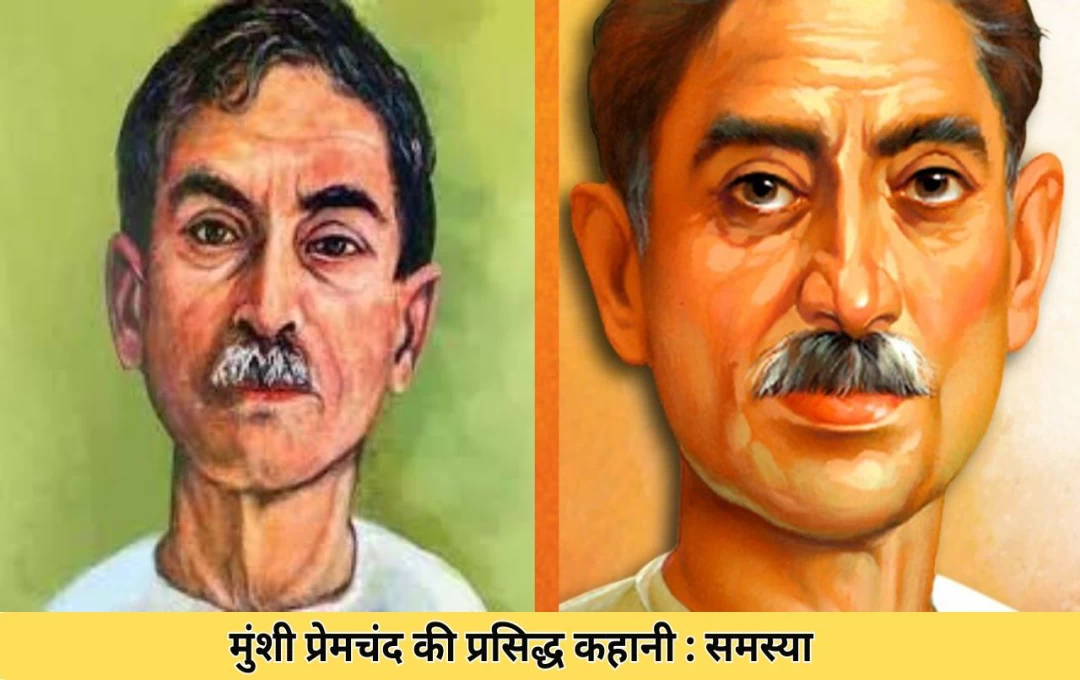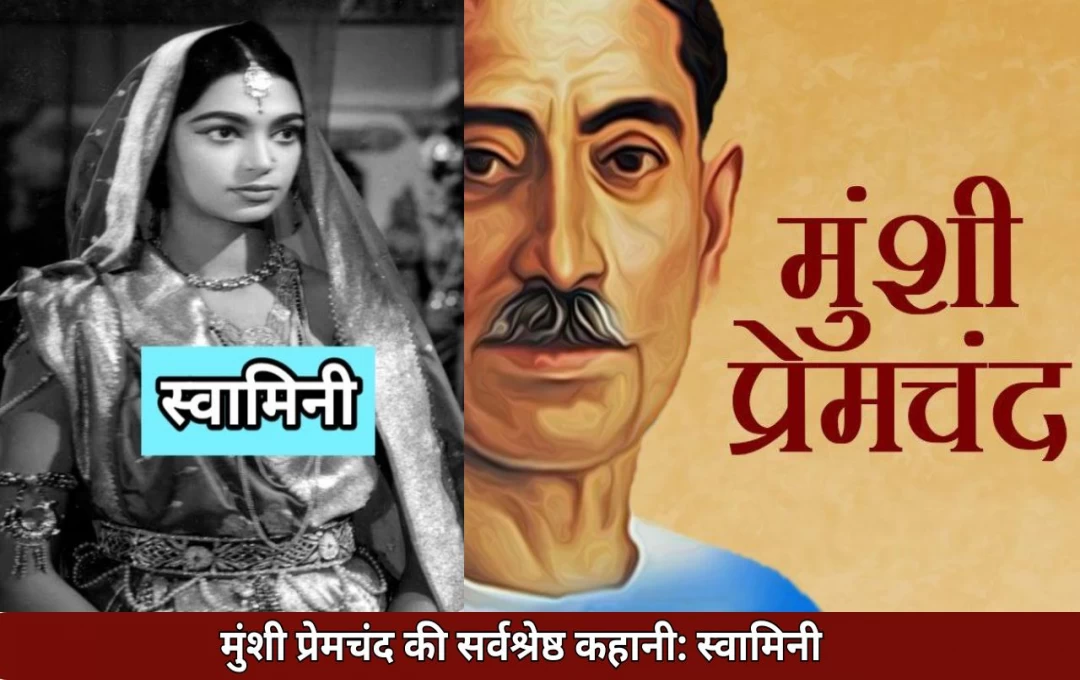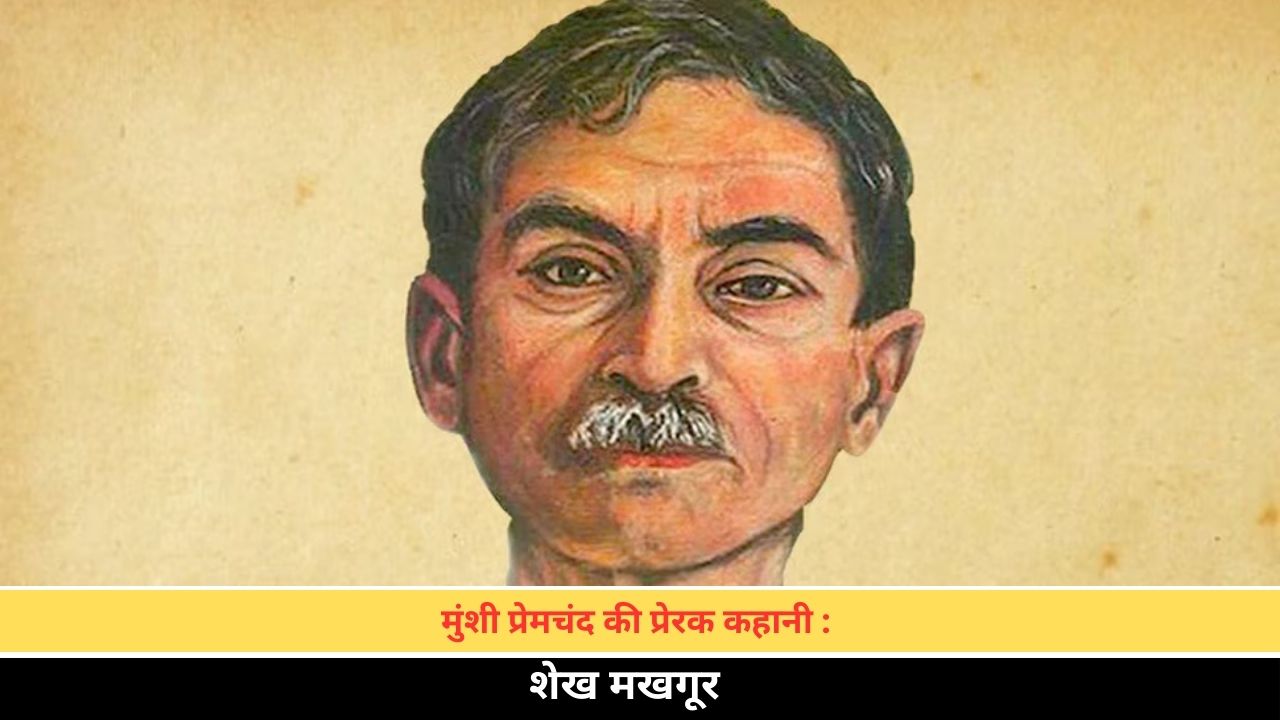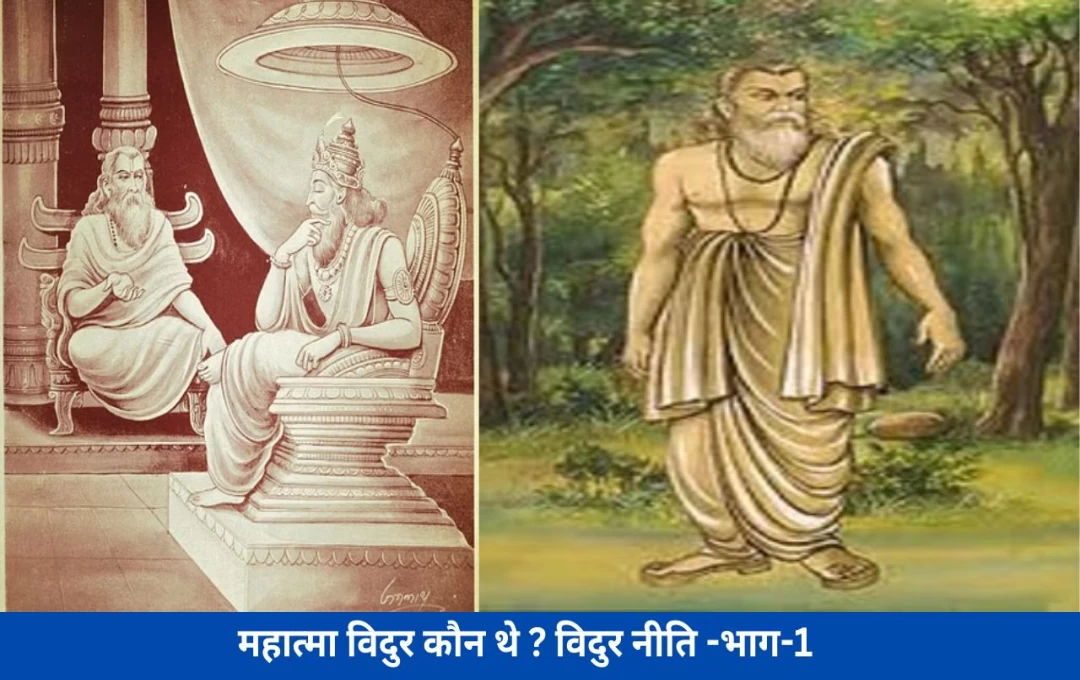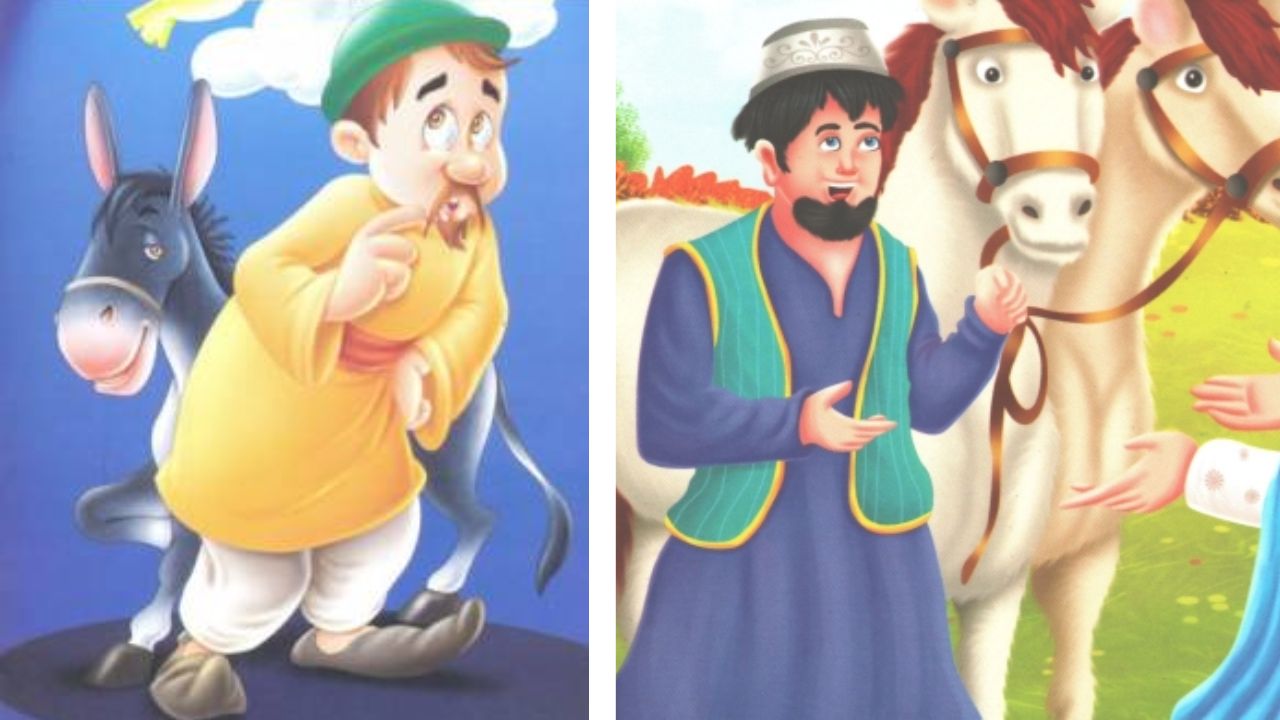Friends, our country has been a birthplace and a land of action for great individuals throughout the ages, brimming with qualities like sages, poets, writers, and musicians. The thousands of creations penned by these great figures are invaluable treasures. Today's youth, in this digital age, seem to be lost somewhere, and we are moving further away from our heritage and priceless wealth. subkuz.com continually strives to bring you not only these invaluable treasures but also entertaining stories, news, and information from around the world. Here is a timeless story, profoundly inspiring, written by the renowned author Munshi Premchand.
The Problem
There are four peons in my office. One of them is named Garib. He is a very straightforward, obedient man, attentive to his work, and one who quietly endures indignities—a person embodying his name and character. I have been in this office for a year, yet I have never found him absent. I have grown accustomed to seeing him sitting on my worn rug at 9 a.m., as though he were an integral part of this building. He is so simple that he never avoids anyone's words. One man is a Muslim. The entire office seems to fear him; I don't know why. The only reason I can think of is his grand pronouncements. According to him, his cousin is a Qazi in the Rampur state, and his uncle is a Kotwal in the Tonk state. The consensus has given him the title of "Qazi Sahib." The remaining two gentlemen are Brahmins. The value of their blessings far surpasses their work. These three are lazy, disrespectful, and indolent. Ask them to do even the smallest task, and they will not move without complaint. They pay no heed to the clerks! They only defer to the senior Babu, though they sometimes quarrel with him. Despite these shortcomings, no one in the office has a more tarnished reputation than poor Garib. When opportunities for advancement arise, the other three always seize them, while no one bothers to ask about Garib. Everyone else earns ten rupees each, while he remains stuck at six. From morning till evening, his feet never rest—the three peons constantly domineering him, and he receives nothing from the office's income. Yet, every employee—from the peons to the Babus—teases him. He has complained many times, received numerous fines, and is scolded daily. The reason for this eludes me. However, I certainly feel pity for him, and I try to demonstrate through my actions that in my eyes, he deserves as much respect as any of the other peons. In fact, I have even argued with other staff members on his behalf on several occasions.
One day, the senior Babu asked Garib to clean his desk. He immediately began to clean. By chance, the broom struck a blow, the inkpot overturned, and ink spread across the desk. The senior Babu stormed out of his room. He grabbed Garib by the ears, twisted them, and started hurling insults at him, drawing from every common language of India. Poor Garib, tears welling up in his eyes, stood silently like a statue, listening as if he had committed murder. I found the Babu's ferocious outburst over such a minor incident reprehensible. Even if one of the other peons had committed a significantly greater offense, such a violent reaction would not have been warranted. I spoke up in English, "Babu Sahib, you are being unjust. He didn't intentionally spill the ink. Such harsh punishment is the height of unfairness."
The Babu replied, "You don't know him, he is very wicked."
"I don't see any wickedness in him."
"You don't know him yet. He is a real scoundrel. He farms two ploughs of land, engages in transactions worth thousands of rupees, and owns several buffaloes. He is arrogant about these things."
"If he is so well off, why is he working as a peon here?"
"Believe me, he is a highly educated person and quite a miser."
"Even if that is true, it is not a crime."
"Oh, you don't know these things yet. Stay a few more days, and you will discover just how treacherous he is."
Another gentleman said, "Brother Sahib, he has plenty of milk, curds, peas, millet, and chickpeas at home, but he has never even considered giving a little to the office staff. He is wasting his time here. If not for this job, he wouldn't have even had a small measure of opium in his house."
The senior Babu hesitated and said, "It's no big deal. It's his property; he can give it to someone or not. But he's certainly a beast."
I began to understand the situation. I said, "If such a petty-minded person is a beast, then he truly is." I had not known this."
The senior Babu opened up, his reservations dissolved. He said, "Such offerings do not truly uplift anyone, but they reveal the giver's compassion and evoke hope only in those who deserve it. One cannot expect anything from someone who has no capacity."
The mystery was unveiled. The senior Babu had clearly explained the situation. Everyone, small or large, is an enemy of prosperity. If our in-laws or maternal relatives are poor, we don't expect much from them! They might even be forgotten. But if they are wealthy and don't visit, or send offerings for festivals, our hearts are filled with resentment. We visit our poor friends and are content with a single beedi; yet, what person wouldn't criticize and despise a wealthy friend for not offering us hospitality, and never extend any respect to them again? If Sudama had returned disappointed from Krishna's home, he might have become an even greater enemy than Sisupal and Jarasandha. This is human nature."
Some days later, I asked Garib, "Why, do you have any farming at your home?"
Garib said in a mournful tone, "Yes, sir, I do. Are your two servants working on it?"
"Do you also own cows or buffaloes?"
"Yes, sir; I own two buffaloes, but the cows are not yet pregnant. Sir, only through the mercy of others can we put food on the table."
"Have you ever given any gifts to the office staff?"
Garib said with great humility, "Sir, how can I possibly offer gifts to the officials. All I cultivate is barley, chickpeas, corn, and millet. I am just a simple man. How dare I offer such things to you, the mighty? I am afraid that if I offer something, I may be reprimanded. It is not appropriate for me to give gifts of such quality. I should, at least, offer a beedi."
"Well, if you bring something for a day, see what people say. These things are not easily available in the city. These people often desire fine things."
"Sir, what if someone complains? If any officer complains, I won't be able to stay here."
"That is my responsibility. No one will say anything to you. If someone does, I will explain."
"So, sir, peas are in season now. Chickpea curry and oil are also available. Apart from that, nothing else."
"Just bring these things."
"If they are slightly spoiled, only you can resolve it."
"Yes, sir, I will take care of it."
The next day, Garib came, accompanied by three robust young men. Two carried baskets filled with peas, and the third carried a pot of sugarcane juice. All three were carrying bundles of sugarcane under their arms. Garib discreetly positioned himself beneath a tree in front of the verandah. He lacked the courage to enter the office, as if a criminal stood hiding beneath the tree. Immediately, the peons and other employees surrounded him. Some started sucking on sugarcane, and others pounced on the baskets, creating a chaotic scene. Just then, the senior Babu arrived at the office. Seeing the commotion, he shouted, "What is this crowd? Go about your business."
I approached him and whispered, "Garib has brought these gifts from home. Please take some for yourself and distribute the rest."
The senior Babu, feigning anger, said, "Why have you brought these things here? Take them away now, or I will report you to the boss. Do you think we are all fools?"
Garib's face paled. He trembled uncontrollably. He couldn't utter a word. He looked at me with an expression of guilt.
I intervened and apologized on his behalf. After much discussion, the Babu agreed. Half of the items were sent home, and the rest were distributed among the employees. The incident concluded.
Garib's reputation within the office improved. He was no longer subjected to ridicule or the taunts of colleagues. The peons even started taking care of his work. His name was slightly changed to Garibdas. A subtle change in his character manifested. Instead of humility, he developed a sense of self-respect. His diligence was replaced by indolence. He would sometimes be late to work or feign illness to stay home. All his transgressions were now forgiven. He had mastered the art of gaining respect. He now started bringing milk and yogurt to the senior Babu every few days. He had learned the art of pleasing the gods. His simple nature had been replaced by cunning.
One day, the senior Babu sent him to the station to collect a parcel of official forms. There were many b porters. They came on a handcart. Garib had agreed to pay them twelve annas for their labor. When the papers reached the office, he demanded twelve annas from the senior Babu for the porters. But after walking a short distance, his intentions changed. He demanded his own share of the money. The porters refused. Enraged, Garib pocketed all the money and threatened, "I won't give you a single penny now. Go complain wherever you want."
Seeing that refusing the payment would cause a loss to them, the porters agreed to pay four annas. Garib gave them eight annas, issued a receipt for twelve annas with their thumbprint, and the receipt was submitted to the office.
I was astonished by this incident. This was the same Garib who had been a symbol of humility and innocence just months before; someone who never dared to ask for his share from the peons, or to give to others. Witnessing this change in his character filled me with regret. Whose responsibility was this? Mine, who had taught him the first lessons in deception and shrewdness. I questioned myself—was the innocence that tolerated injustice preferable to this cunning that exploited others? That fateful moment when I directed him toward gaining status, was the beginning of his downfall. I sacrificed his intrinsic worth for external recognition.
This is a motivational story by the great writer Munshi Premchand. We learn valuable lessons from this story. The entire subkuz team is dedicated to providing our visitors with daily motivational stories. Continue reading these inspiring and insightful stories at subkuz.com.
